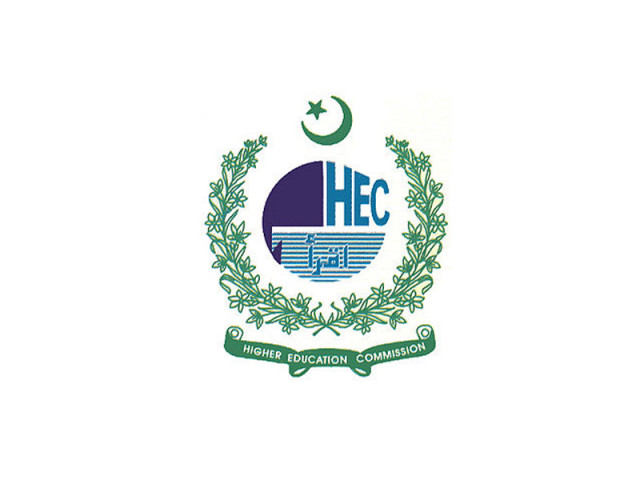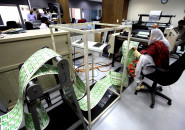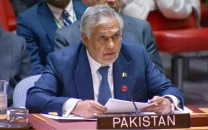Wild varsity spending: Auditors find irregularities at HEC, two varsities
HEC unable to recover Rs1m from former chairman used to pay for club membership

The audit report of the Higher Education Commission (HEC) for 2013-14 has found massive irregularities in salary payments and the award of projects to universities.
The audit also questioned why the HEC illegally paid Rs1 million to Islamabad Club in 2010 for the membership of then-chairman Javed Laghari.
According to the report, recently presented before Parliament, the HEC incurred expenditure of Rs426 million under National Research Programme for Universities (NRPU) during 2012-13. The audit observed that the HEC did not make a policy to award projects under the NRPU. The commission also did not have a policy about delays in the projects and funding utilisation.
“Audit is of the view that in the absence of an approved policy by the commission, the authenticity of expenditure incurred on research could not be ascertained.”

Laghari’s club membership
The audit staunchly criticised the payment of Rs1 million to Islamabad Club against membership fee for former chairman Javed Laghari. The amount was paid in 2010 through three cheques.
In its reply to the AGP, the commission maintained that the chairman’s membership was necessary “in view of the situation in the country and for liaison with international organisations”. The audit report said the reply was not accepted because an undue favour was extended to the chief in violation of general financial rules.
As membership is granted to persons and not positions, Laghari still retains the membership. The HEC has written to him to refund the amount.
The salary of a former executive director (ED) --- incumbent chairman Dr Mukhtar Ahmed --- has also been termed irregular. The HEC advertised the post of ED as an MP-I contract job and modified it to the package granted to vice chancellors of federally-chartered varsities without the necessary approval of the prime minister.
Non submission of receipts
Auditors also questioned why the HEC deposited Rs239 million, collected through degree attestation fees, in a private account instead of the government treasury. The auditors termed the retention and utilisation of receipts irregular and unauthorised and an act of “depriving the government of its due receipts”.
The HEC Ordinance 2002, however, contains no provisions regarding the utilisation of government receipts.
COMSATS
The audit also objected to COMSATS Institute of Information Technology (CIIT)’s purchase of 1,000 laptops worth Rs24 million in 2011-12 without open competition. According to the report, the laptops were handed over to the employees of various campuses for 60 per cent of the purchase price on a 24-instalment schedule.
A private consultant was hired for Rs1.37 million to purchase the laptops, which was irregular as there is no provision in the rules for hiring agents. The report adds that there is also no provision in the rules for the subsidy provided to employees.
In addition, CIIT appointed 70 staffers against unsanctioned posts at its Lahore campus and paid them Rs24 million in salaries without approval from the varsity’s board.
NUML
The report also questioned the National University of Modern Languages paying Rs56 million in rental ceiling to its employees instead of to the owners of the houses. The auditors also observed that the lease agreements were signed between the owners of the houses and the employees, instead of owners and the varsity.
NUML also appointed Col (retd) Syed Jawaid Ahmad as associate professor in BPS-19 in the English language department for a period of two years on December 4, 2000. The contract was later extended to December 31, 2011. Before the expiry of the extended contract, Jawad, then 68 years old, was appointed academics director for one year against a salary of Rs120,000 per month.
“The audit is of the view that appointment was irregular and illegal,” the report said.
Published in The Express Tribune, October 29th, 2014.



















COMMENTS
Comments are moderated and generally will be posted if they are on-topic and not abusive.
For more information, please see our Comments FAQ